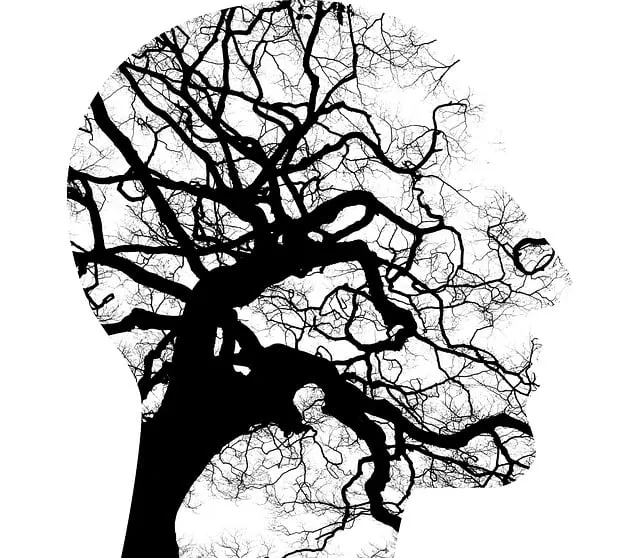Kaiser Permanente has developed an innovative and comprehensive mental wellness program evaluation system, crucial for its superior Kaiser Permanente mental health jobs. This approach combines quantitative metrics (PHQ-9, GAD-7) with qualitative methods (interviews, focus groups, observations) to assess participant satisfaction, clinical outcomes, cultural sensitivity, and overall effectiveness. By analyzing stress management workshops, crisis intervention guidance, and mood management strategies, the organization optimizes resource allocation for tailored programs enhancing holistic employee well-being. This strategic evaluation ensures continuous improvement in mental healthcare services, setting a benchmark for Kaiser Permanente mental health jobs to excel in supporting employees' mental wellness.
Mental wellness program evaluation is a vital process for ensuring the effectiveness and improvement of support services. This comprehensive guide explores methods used in assessing these programs, with a focus on the innovative practices implemented by Kaiser Permanente in their mental health jobs initiatives.
From understanding the foundational concepts to measuring success and fostering continuous improvement, we delve into key strategies. Discover superior evaluation techniques that not only enhance service quality but also contribute to the overall well-being of those seeking mental wellness support.
- Understanding Mental Wellness Program Evaluation: A Foundation for Improvement
- Kaiser Permanente's Approach: A Comprehensive Framework for Mental Health Jobs
- Key Methods in Evaluating Mental Wellness Programs
- Measuring Success: Metrics and Tools for Program Effectiveness
- Continuous Improvement: Applying Evaluation Findings to Enhance Services
Understanding Mental Wellness Program Evaluation: A Foundation for Improvement

Mental wellness program evaluation is a crucial process for any organization, especially those like Kaiser Permanente that prioritize mental health jobs and initiatives. It serves as a foundation for continuous improvement in mental healthcare services. By systematically assessing the design, implementation, and impact of programs, organizations can identify strengths and areas that need enhancement. This data-driven approach ensures that resources are allocated effectively to meet the diverse needs of individuals seeking support.
Evaluating mental wellness programs involves examining various aspects such as participant satisfaction, clinical outcomes, cultural sensitivity in mental healthcare practice, and the overall effectiveness of interventions. Incorporating self-awareness exercises and stress management workshops within these evaluations provides valuable insights into the personal growth and resilience of participants. These findings can guide organizations in refining their practices, creating more tailored and impactful programs that positively contribute to the well-being of those they serve.
Kaiser Permanente's Approach: A Comprehensive Framework for Mental Health Jobs

Kaiser Permanente has established a superior framework for mental health jobs through its comprehensive approach to employee wellness. Their strategy involves a multi-faceted program that includes a range of services and initiatives aimed at promoting mental resilience and overall well-being. One key component is the Stress Management Workshops Organization, which offers evidence-based workshops designed to equip employees with coping mechanisms and stress reduction techniques. These workshops are tailored to address various stressors, ensuring that individuals gain practical skills for managing their mental health effectively.
Additionally, Kaiser Permanente provides Crisis Intervention Guidance, offering immediate support during times of crisis. This guidance is vital in fostering a supportive work environment and preventing issues from escalating. The organization also prioritizes mood management by integrating strategies into daily operations, encouraging open conversations about mental health, and destigmatizing these discussions. Through these initiatives, Kaiser Permanente demonstrates its commitment to the holistic well-being of its workforce, setting a standard for superior mental health support in the workplace.
Key Methods in Evaluating Mental Wellness Programs

When evaluating mental wellness programs, several key methods stand out for their effectiveness in measuring success and identifying areas for improvement. One prominent approach involves the use of standardized questionnaires and surveys to assess symptoms, attitudes, and behaviors related to mental health. These tools, such as the Patient Health Questionnaire (PHQ-9) or Generalized Anxiety Disorder Scale (GAD-7), provide quantifiable data that allow for comprehensive comparisons both within and across programs.
Additionally, qualitative methods like interviews and focus groups offer valuable insights into participants’ experiences and perceptions. By delving into personal narratives, these techniques uncover nuances not apparent in quantitative data, highlighting the impact of specific interventions, such as Social Skills Training or Emotional Well-being Promotion Techniques. Moreover, evaluating program implementation through observation and case studies can reveal effective Community Outreach Program Implementation strategies, providing insights that inform best practices for similar initiatives within and beyond Kaiser Permanente mental health jobs.
Measuring Success: Metrics and Tools for Program Effectiveness

Measuring success is a vital aspect of evaluating any mental wellness program, particularly in prestigious organizations like Kaiser Permanente. When it comes to mental health jobs within healthcare, gauging the effectiveness of initiatives aimed at promoting well-being among employees, such as anxiety relief programs or burnout prevention strategies for healthcare providers, requires a strategic approach.
The primary metrics and tools employed should align with the specific goals of the program. For instance, tracking reductions in stress levels, improved job satisfaction scores, and decreased absence rates can offer valuable insights into the success of initiatives like Trauma Support Services. Additionally, qualitative feedback from participants through surveys or focus groups can enrich quantitative data, providing deeper understanding of individual experiences and overall program impact.
Continuous Improvement: Applying Evaluation Findings to Enhance Services

At Kaiser Permanente mental health jobs, we understand that continuous improvement is vital for enhancing the quality and effectiveness of our services. Evaluation findings play a crucial role in this process by providing insights into what’s working well and areas needing attention. By applying these learnings, we can adapt and refine our programs to better meet the diverse needs of our community. This iterative approach ensures that our mental wellness initiatives remain relevant, accessible, and impactful.
For instance, evaluation data might reveal successful strategies in coping skills development or mood management that can be scaled up across different service lines. Conversely, it could highlight gaps in public awareness campaigns, prompting targeted efforts to increase community engagement and reduce stigma. Ultimately, this dynamic process fosters a culture of learning and adaptation, driving our commitment to superior mental health support for all.
Mental wellness program evaluation is a vital process, as highlighted by Kaiser Permanente’s comprehensive framework, that enables continuous improvement and ensures superior mental health services. By employing key methods, such as measuring success with relevant metrics, organizations can navigate the complex landscape of mental health support. Leveraging these strategies, along with a commitment to learning from evaluation findings, fosters a dynamic environment where programs adapt and evolve to better meet the needs of those they serve.






